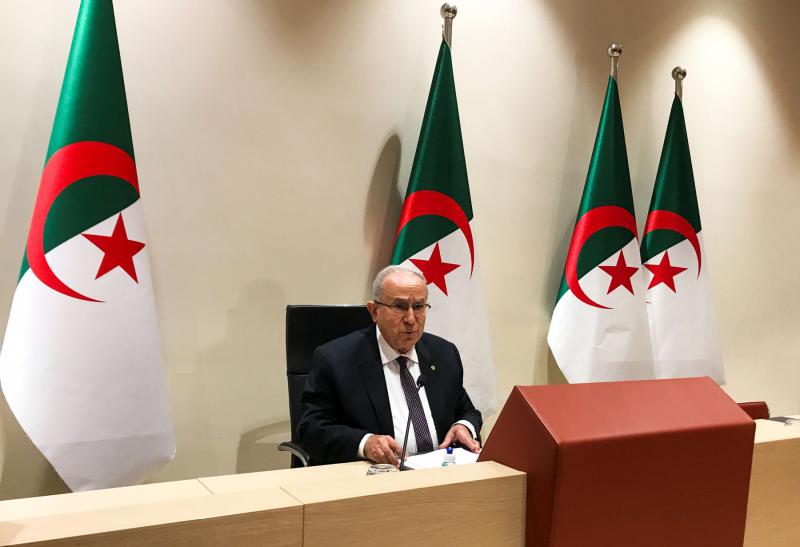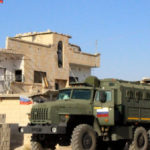Morocco has rejected Algeria’s decision to sever ties with the kingdom as “completely unjustifiable” but pledged to continue acting as “a loyal partner of the Algerian people.”
“Algeria has decided to cut diplomatic relations with the kingdom of Morocco from today,” Algeria’s Foreign Minister Ramtane Lamamra announced during a press conference in Algiers, Tuesday, citing “hostile actions” by Rabat as the reason of the decision.
In response, the Moroccan ministry of foreign affairs said, “it regrets this completely unjustified but expected decision, in view of the logic of escalation noted in recent weeks, as well as its impact on the Algerian people.”
It also rejected “the fallacious, even absurd, pretexts underlying” the move.
Maghreb analysts described Algeria’s severing of diplomatic relations with Morocco as a reflection of its refusal to accept regional changes and its insistence on squandering opportunities for cooperation and better relations with Morocco, despite the many overtures from King Mohammed VI.
Late last month, Morocco’s king deplored the tensions between the two countries and invited Algeria’s President Abdelmadjid Tebboune “to make wisdom prevail” and “to work in unison for the development of relations” between the two countries.
The analysts accused Algeria of choosing escalation following the decision of the US to recognise Moroccan sovereignty over the Western Sahara, with the latest ratcheting being the unsubstantiated accusations that Morocco was behind the forest fires in the Kabyle region.
Algeria’s fires, which broke out on August 9 amid a blistering heatwave, burned tens of thousands of hectares of trees and killed at least 90 people, including more than 30 soldiers, further stoking tensions.
The Algerian authorities found themselves in a tough predicament at home as they faced mounting criticism over their failure to prepare for the blazes, though Tebboune declared that most of the fires were of “criminal” origin.
Forest fires have broken out in more than one Mediterranean country, as Turkey, Greece, Lebanon and Tunisia all suffered from the same disasters, which is likely linked to climate change.
Ramtane Lamamra reiterated the Algerian presidency’s accusation of “Rabat’s involvement in the recent wave of fires that the country has experienced and in the horrific crime that killed the young volunteer, Jamal Ibn Ismail.”
He also accused Rabat of “embracing the two terrorist organisations, the Kabyle Independence Movement (MAC) and the Rachad Movement,” which Algiers alleges were behind the fires.
“The Moroccan provocation reached its climax when a Moroccan delegate to the United Nations demanded the independence of the people of the Kabylie region,” Lamamra said, adding that Algeria waited for the Moroccan leadership to provide it with an explanation on the issue if (that) was an isolated act or an official position.”
However, he said, “the silence of Morocco since the middle of last July has suggested that the aforementioned endeavour is a Moroccan position.”
Last month, Algeria recalled its ambassador to Rabat for consultations over allegations that Morocco’s envoy to the United Nations, Omar Hilale, voiced support for self-determination in Kabylie.
Some analysts link the Algerian response to Morocco’s mounting diplomatic and political successes in recent years, the latest of which was the recognition by the United States and a number of Gulf countries of its sovereignty over the Western Sahara.
“The Algerian move falls within a natural context adopted by the regime in Algiers, which believes that escalation with Morocco can help it overcome its deep internal crisis,” Lebanese political analyst Khairallah Khairallah said.
Khairallah added that the Algerian decision meant “the rejection of Morocco’s outstretched hand” and was evidence of “the bankruptcy of a regime that does not know that its first problem is with its people and not with Morocco.”
Ramtane Lamamra also said that the final decision over the contract related to the Algerian gas pipeline transiting Morocco to Spain is subject to international arbitration and agreements and that Sonatrach, which owns the pipeline, is the decision-maker over the renewal or termination of the contract in the near future.
There were conflicting accounts in the two capitals over the fate of the agreement concluded between the two countries on the gas pipeline, which expires at the end of this year.
Algeria’s foreign minister also accused Morocco of leading “a media war … against Algeria, its people and its leaders”.
He accused Morocco’s government of “responsibility for repeated crises” and behaviour that has “led to conflict instead of integration” in North Africa.
But Lamamra also said consular assistance to citizens of both countries would not be affected.
The Moroccan foreign ministry has pledged that the kingdom “will remain a credible and loyal partner for the Algerian people and will continue to act, with wisdom and responsibility, for the development of healthy and fruitful inter-Maghreb relations.”
Source: Arab Weekly
***Show us some LOVE by sharing it!***



